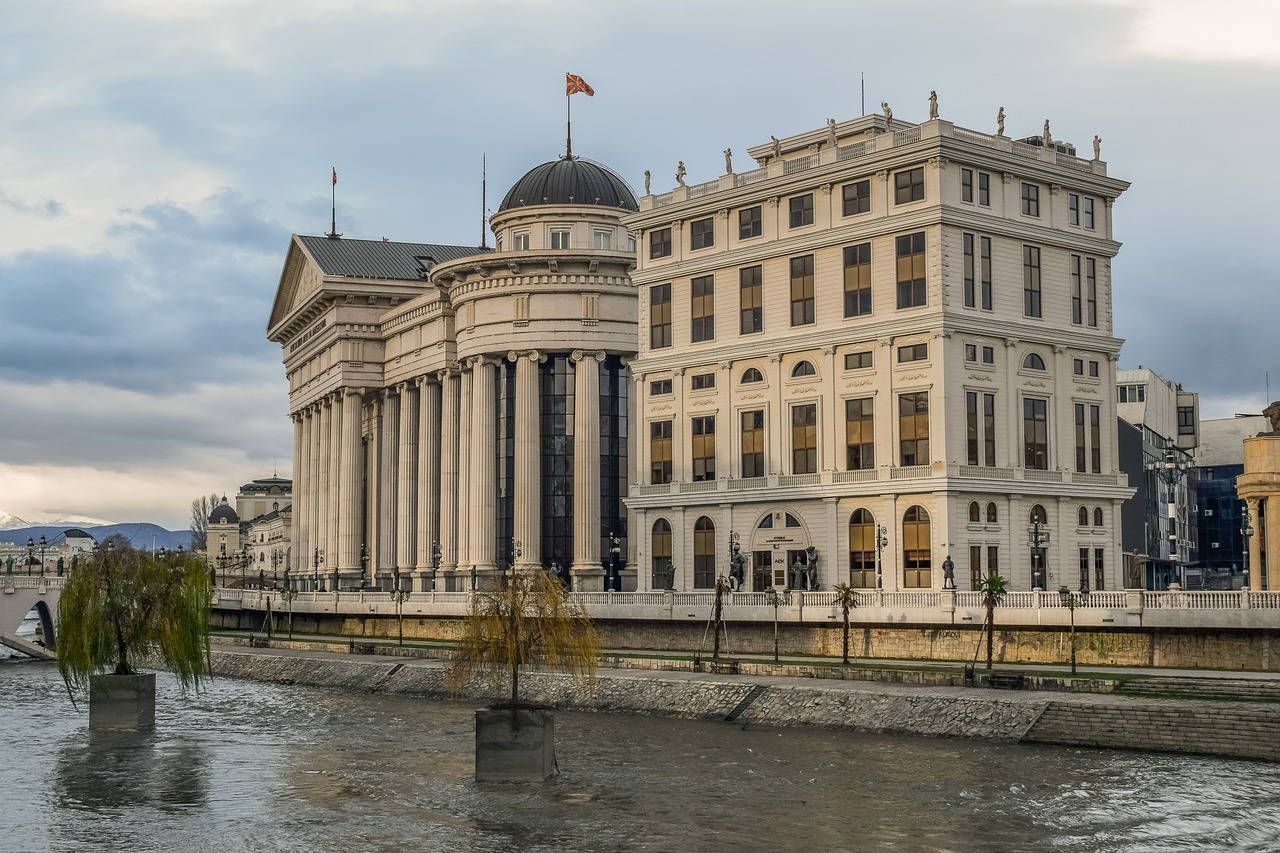Macedonia Video
Navigating Local Taxes and Business Regulations in Macedonia
Macedonia, officially known as the Republic of North Macedonia, is a landlocked country located in the Balkan Peninsula in Southeast Europe. With a rich history and diverse culture, it offers opportunities for entrepreneurs and businesses. However, navigating local taxes and business regulations is crucial for success. This article aims to provide detailed information on various aspects related to local taxes and business regulations in Macedonia.
Understanding the Tax System
Navigating the tax system is essential for any business operating in Macedonia. The country follows a progressive tax system, with different tax rates based on income levels. The Personal Income Tax Law governs personal income tax, while the Corporate Income Tax Law regulates corporate taxes.
- Personal Income Tax: The personal income tax rate in Macedonia ranges from 10% to 18%, depending on the income level. Individuals are required to file annual tax returns.
- Corporate Income Tax: The corporate income tax rate in Macedonia is a flat rate of 10%. Companies are obligated to file tax returns annually.
- Value Added Tax (VAT): The standard VAT rate in Macedonia is 18%. However, certain goods and services may be subject to reduced rates or exemptions.
- Local Taxes and Fees: In addition to national taxes, businesses may be subject to local taxes and fees imposed by municipalities.
Business Registration and Licensing
Before starting a business in Macedonia, it is necessary to register and obtain the required licenses. The process involves several steps and can be completed through the Central Register of the Republic of North Macedonia.
- Business Registration: Business registration can be done either as a sole proprietorship or a legal entity. The registration process requires submission of necessary documents and payment of registration fees.
- Trade License: Depending on the type of business activity, specific trade licenses may be required. These licenses are obtained from the relevant authorities.
- Permits and Certificates: Certain industries or activities may require additional permits or certificates from regulatory bodies. Examples include construction permits, health certificates, and environmental permits.
- Employment and Labor Regulations: Businesses must comply with employment and labor regulations, including hiring practices, working conditions, and social security requirements.
Intellectual Property Rights
Protecting intellectual property is crucial for businesses operating in Macedonia. The country has laws and regulations in place to safeguard intellectual property rights, including patents, trademarks, and copyrights.
- Patents: Patents protect inventions and technical innovations. The State Office of Industrial Property is responsible for patent registration and protection.
- Trademarks: Trademarks protect brands and logos. The State Office of Industrial Property handles trademark registration and enforcement.
- Copyrights: Copyrights protect original works of authorship, such as literary, artistic, and musical creations. The Ministry of Culture is responsible for copyright registration.
Import and Export Regulations
Understanding import and export regulations is essential for businesses engaged in international trade. Macedonia follows the regulations set by the European Union, as the country is a candidate for EU membership.
- Customs Duties: Importing goods into Macedonia may be subject to customs duties. The rates vary depending on the type of goods and their origin.
- Export Controls: Certain goods may require export licenses or permits due to legal restrictions or international agreements.
- Customs Procedures: Compliance with customs procedures, including documentation and declaration requirements, is necessary for smooth import and export operations.
Investment Incentives
Macedonia offers various investment incentives to attract foreign direct investment and promote economic growth. These incentives aim to stimulate business activities in specific sectors and regions.
- Tax Incentives: The government provides tax incentives, such as tax exemptions or reduced tax rates, for eligible investments in priority sectors.
- Financial Support: Financial support programs, including grants and loans, are available to support investment projects.
- Infrastructure Development: The government invests in infrastructure development to improve transportation, utilities, and telecommunications.
- Special Economic Zones (SEZs): SEZs offer specific incentives, including tax benefits and streamlined administrative procedures, to attract investments.
Business Associations and Support Organizations
Joining business associations and seeking support from relevant organizations can provide valuable resources and networking opportunities for businesses in Macedonia.
- Chamber of Commerce: The Chamber of Commerce and Industry of North Macedonia is a prominent business association that represents the interests of the business community.
- Investment Promotion Agency: The Investment Promotion Agency of North Macedonia provides assistance and information to potential investors.
- Business Support Centers: Various business support centers offer services, including consulting, training, and market research, to assist businesses.
Macedonia Image 1:

Local Tourism and Hospitality Regulations
For businesses in the tourism and hospitality sector, complying with local regulations is crucial to ensure quality services and guest satisfaction.
- Accommodation Licensing: Hotels, guesthouses, and other accommodation providers must obtain the necessary licenses and meet specific requirements.
- Food Safety and Hygiene: Restaurants, cafes, and food establishments must adhere to food safety and hygiene standards set by the relevant authorities.
- Tour Guide Licensing: Tour guides must be licensed to provide guided tours in Macedonia. They are required to possess adequate knowledge and language skills.
- Transportation Services: Taxi services, rideshares, and other transportation providers must comply with licensing and safety regulations.
Macedonia Image 2:

Environmental Regulations
Preserving the environment and complying with environmental regulations is a priority in Macedonia. Businesses must consider environmental impacts and take necessary measures to minimize their ecological footprint.
- Waste Management: Proper waste management practices, including recycling and disposal, are essential for businesses.
- Environmental Permits: Certain activities, such as construction or industrial operations, may require environmental permits to ensure compliance with environmental standards.
- Renewable Energy: Investing in renewable energy sources and energy-efficient technologies is encouraged, and incentives may be available.
Local Tax Incentives and Grants
Local governments in Macedonia offer various tax incentives and grants to attract businesses and stimulate economic development in their respective regions.
- Property Tax Incentives: Local municipalities may provide property tax exemptions or reductions for specific types of investments.
- Job Creation Grants: Grants may be available to businesses that create new jobs in certain regions or industries.
- Infrastructure Support: Local governments invest in infrastructure projects to support businesses and improve connectivity.
Macedonia Image 3:

Conclusion
Navigating local taxes and business regulations in Macedonia is vital for businesses to thrive and comply with legal requirements. Understanding the tax system, registering a business, protecting intellectual property, complying with import and export regulations, and taking advantage of investment incentives are essential steps. Additionally, businesses should consider joining relevant associations and seeking support from organizations. By adhering to local regulations and utilizing available incentives, businesses can establish a strong foundation for success in Macedonia.
References
– Ministry of Finance: finance.gov.mk
– State Office of Industrial Property: ipard.gov.mk
– Ministry of Culture: kultura.gov.mk
– Chamber of Commerce and Industry of North Macedonia: mchamber.mk
– Investment Promotion Agency of North Macedonia: investnorthmacedonia.gov.mk


